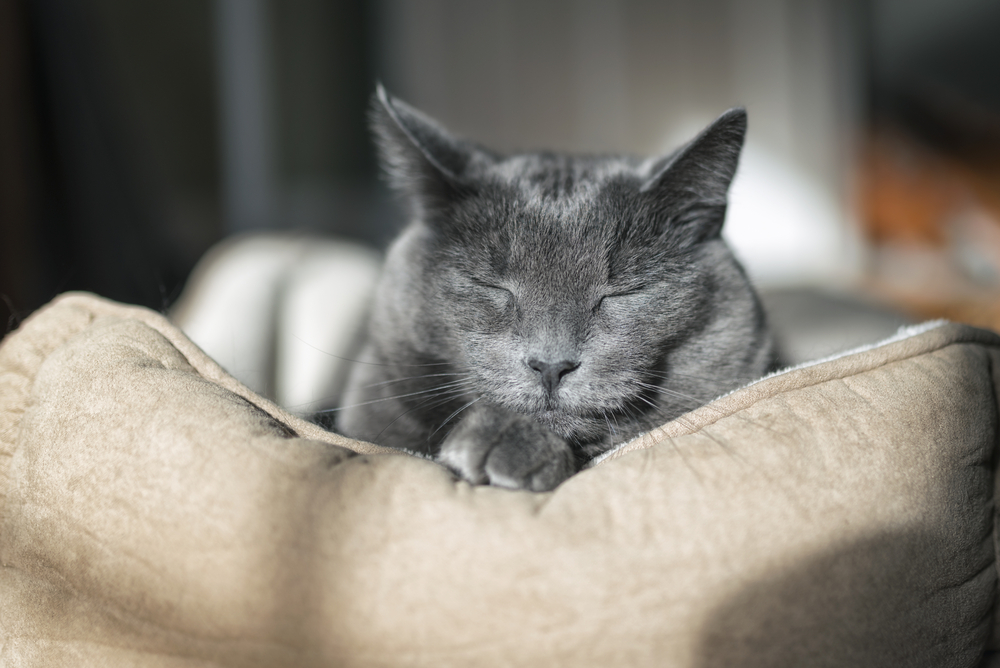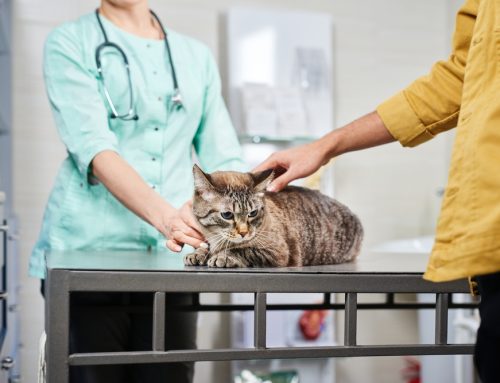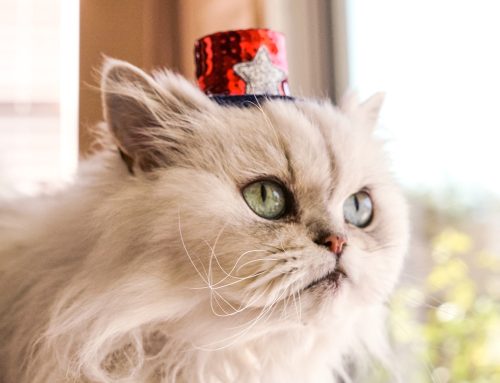As your pet reaches their senior years, you may wonder if they are showing signs of typical age-related changes, or whether they are experiencing pain or discomfort. Your pet’s quality of life (QOL) depends on their overall physical and mental wellbeing, and accurately assessing this factor is important to ensure they aren’t suffering needlessly. Our Twin Maples Veterinary Hospital team wants to help with information about conditions that commonly affect senior pets, and how you can objectively measure their QOL.
Common senior pet health complications
Senior pets are at higher risk for many health complications, and these conditions can negatively impact their quality of life. Examples include:
- Arthritis — If your senior pet seems to be slowing down, they may have arthritis, which is extremely common in senior pets. Inflammation and deterioration inside the joint can cause significant pain and decrease your pet’s mobility. Many pet owners contribute their pet’s decreased activity to normal aging, but treatments can alleviate your pet’s suffering if arthritis is contributing to their condition.
- Cognitive dysfunction — Cognitive dysfunction is a condition similar to Alzheimer’s disease in humans. Affected pets exhibit signs including disorientation, social interaction and sleeping pattern changes, increased anxiety, a decline in learning and memory abilities, decreased interest in play, and house soiling. While no cure is available, management techniques can be used to slow the condition’s progression.
- Chronic kidney disease (CKD) — Pets with CKD gradually lose kidney function. CKD has four stages, and clinical signs are typically not evident until a pet reaches stage three, which means that regular wellness screenings are important to catch such conditions in the early stages, when they are easier to treat and the prognosis is better.
- Cancer — Your pet’s cancer risk increases as they age.
Quality of life assessment for senior pets
When assessing your senior pet, you may have difficulty determining if their condition is acceptable, but a quality of life scale, which provides guidelines to help you objectively measure your pet’s QOL, can be helpful. The scale evaluates seven categories, and scores each parameter from 1 to 10, with 10 being ideal. An overall score above 35 suggests your pet’s quality of life is acceptable. Parameters assessed include:
- Hurt — Adequate pain control, including the ability to breathe properly, is paramount to your pet’s overall QOL. Questions to consider include:
- Is your pet in pain?
- Can your pet’s pain be effectively managed?
- Can your pet breathe properly?
- Hunger — Your pet must be able to ingest appropriate nutrients to sustain life. Questions to consider include:
- Can your pet eat on their own?
- Is your pet eating enough?
- Does your pet need a feeding tube?
- Hydration — Dehydration can lead to serious health complications that exacerbate existing conditions. Questions to consider include:
- Can your pet drink on their own?
- Is your pet drinking enough?
- Can you administer subcutaneous fluids if they aren’t staying hydrated?
- Hygiene — Keeping your pet clean is important to prevent skin irritation and infections. Questions to consider include:
- Can your pet groom themselves appropriately?
- Can you keep your pet clean, if they cannot groom themselves properly?
- Does your pet have sores or infections caused by improper grooming?
- Happiness — Your pet’s QOL also depends on their ability to experience joy. Questions to consider include:
- Does your pet express joy and interest in daily life?
- Does your pet exhibit signs of depression or anxiety?
- Does your pet respond to family members, other pets, or toys?
- Mobility — Mobility is important for pets, although pets who have limited mobility can have a good QOL if their owner is committed to assisting them. Questions to consider include:
- Can your pet move without assistance?
- Can you assist your pet if they can’t move without help?
- Is your pet having seizures or incoordination issues?
You should track your pet’s QOL score each day, and when their bad days consistently outnumber their good days, their QOL is compromised, and you should initiate a plan to ensure they don’t suffer needlessly.
Caring for your senior pet

You can’t stop your pet from aging, but you can take steps to ensure their comfort as they enter their senior years. Tips include:
- Scheduling biannual wellness visits — Senior pets are at higher risk for serious health complications, and they should be evaluated by a veterinarian at least twice a year so these conditions can be detected in the early stages, when they are easier to treat and have a better prognosis.
- Keeping your pet at a healthy weight — Obesity, which is a common problem in senior pets, can reduce their QOL and put them at higher risk for numerous health complications, such as metabolic disorders, cancer, kidney disease, and arthritis. Feed and exercise your senior pet appropriately to keep them at a healthy weight.
- Providing enrichment — Providing food-puzzle toys and playing games that make your pet use their mind can help slow cognitive decline.
- Providing dental care — Dental disease puts your pet at higher risk for heart problems and kidney disease. Schedule regular professional veterinary dental cleanings and keep your pet’s mouth clean with at-home dental care.
- Making changes to your home — Optimize your living space to ensure your senior pet is comfortable. Ideas include updating their bedding to an orthopedic option, placing ramps or stairs near their favorite elevated surface, ensuring their food and water bowls are easily accessible, and providing a low-sided litter box.
Knowing how to assess your pet’s QOL will ensure they are happy for their golden years. If you are concerned about your pet’s QOL, contact our Twin Maples Veterinary Hospital so we can help you determine whether they are happy and comfortable.









Leave A Comment